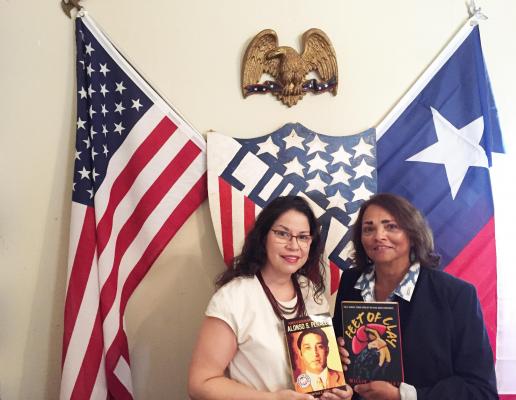Orozco drives through county
By Michael Brooks
Staff Writer
On Tuesday, May 24, Dr. Cynthia E. Orozco made a trip through Jackson County. Orozco is a best-selling author, public historian, and educator whose main focus is on Mexican American civil rights.
“I have been conducting research since 1978,” Orozco explained. “My mother was involved in LULAC in the 1970’s. LULAC stands for League of United Latin American Citizens, the oldest and most important Hispanic civil rights organization in the country.”
In the seventies, Mexican American history was not in the Texas school curriculum, so Orozco began gathering information.
“Beginning in 1978, I took my first Chicano history class,” she said. “I was very much aware of the void that existed in Texas schools and I began to conduct original research.”
Through her research, she came to write her first book No Mexicans, Women, or Dogs Allowed. It became the academic best seller for the University of Texas Press from 2010 to 2020.
“My first book was about the rise of the Mexican civil rights movement,” Orozco explained. “It is the first major history of the founding of LULAC, it is really about how it got started in Corpus Christi. There were other organizations before them starting with the Order of Sons of America out of San Antonio and there was a chapter of that in Corpus. There were also the Latin American Citizens out of Harlingen in 1927. All of those became LULAC.”
Along with her writing accolades, Orozco made history herself when she started writing articles for the Handbook of Texas, which is the Texas Encyclopedia sponsored by the Texas Historical Association.
“I was a graduate student at UCLA,” she continued. “When I came back to Texas to conduct my dissertation research, I was hired as the first Hispanic staff member for the Handbook of Texas. I wrote 80 articles on Tejano and Tejana history for the handbook.” While writing for the Handbook of Texas, one article Orozco wrote tied her in with Millie Diaz’s book Feet of Clay: Gus C. Garcia, Tragic Hero of the Civil Rights Movement.
“Some of the topics and people I wrote about were Gus Garcia, a very important attorney from San Antonio,” Orozco said. “Also Alonso Perales, who is the principal founder of LULAC. I wrote the handbook article about LULAC, and the articles about most of the major Mexican civil rights organizations at the time.”
Orozco hopes with her writing more people will learn about the history of Mexican American civil rights and the prominent people who helped usher in a change for the better.
“I wish more people knew about the handbook articles, which is a permanent online encyclopedia,” she continued. “It is where people can get quick and free information, but also books are important because attention is given to authors of books and so the No Mexicans has had an excellent reception. Another book I wrote is called Agent of Change: Adela Sloss-Vento, Mexican American Civil Rights Activist and Feminist. That book received the 2020 Liz Carpenter award for best book in Texas Women's History. That one received excellent attention but it was impacted by the pandemic. I hope more people will look for that in the future.”
Her most recent book, called Pioneer of Mexican American Civil Rights, Alonso S. Perales covers Perales, the founder of LULAC.
“He was an orphan from Alice, Texas but went on to get a law degree in Washington DC and came back to Texas in the twenties and organized the LULAC organization. He is a very important National figure because he also sought to impact legislation and he is the closest thing we Mexican Americans have to a Martin Luther King Jr.”
In total Orozco has written three books herself and is the author of one co-edited book, to go with all the handbook articles. Even with all that under her belt, she has no intention of stopping.
“Writing is what I do,” she emphatically stated. “The 100 year anniversary of LULAC is in 2029. LULAC has made a major difference in small communities. For example, in Cuero, Gus Garcia was the key person responsible for the desegregation in the Mexican school, which was still going on until around 1940. Also, past LULAC director Joey Cardenas has done significant research undercovering the importance of the Little School of 400 that emerged in Ganado.”
To add to her accolades, Orozco is also a member of a very small community of historians.
“I am happy to be one of probably 130 Mexican American women historians in the country and I am actually number 13. I was fortunate enough to have a mother that had a high school education. In 1938 she would have been highly educated and therefore our family has six college educated children because of my mother.”
Orozco’s books are available on Amazon and the Handbook of Texas Online is at crdl.usg.edu/collection.

